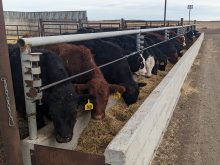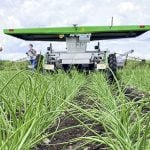Roberta Rampton had an in interesting article in Western Livestock Producer Feb. 1 about Bio-409, micro-organisms that reduce the sour odor of hog manure. They don’t get rid of the smell entirely, but this European-developed product apparently downgrades the aroma to that of fermenting feed. We could be on the verge of an important breakthrough here.
For many decades, the smell of pig barns has been a source of local animosity. A barn will operate quietly and efficiently for many years and then a city will grow or a town will start a new subdivision downwind and the urbanites will start a campaign to get that barn removed.
Read Also

Topsy-turvy precipitation this year challenges crop predictions
Rainfall can vary dramatically over a short distance. Precipitation maps can’t catch all the deviations, but they do provide a broad perspective.
Moving pig barns is horrendously expensive and time-consuming so who’s to blame the farmer for fighting the move to get him out of there? After all, he was there first.
However, if science can come up with an adequate deodorant perhaps the suburbanites might be less adamant about removal of the hog barn. I’m not sure the smell of fermenting feed would be considered much of an improvement on pig manure, but it’s a thought.
One thing that hasn’t had a lot of ink is the effect of nearby human population on pigs. Not only do humans have an odor some animals might consider offensive, but also they operate cars that exude masses of carbon monoxide. Then there’s the manufacturing sector that also afflicts the nose.
The manufacturer may steal the line of the hog farmer and say what his plant produces is the smell of money.
I guess the variation between aroma and stink depends on who’s doing the sniffing.














